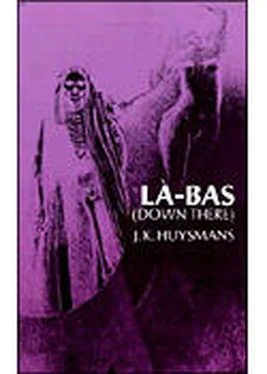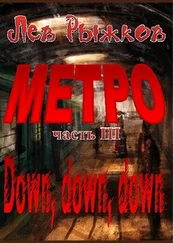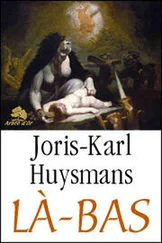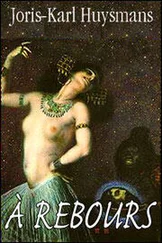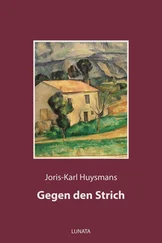Joris-Karl Huysmans - Down There (Là-Bas)
Здесь есть возможность читать онлайн «Joris-Karl Huysmans - Down There (Là-Bas)» весь текст электронной книги совершенно бесплатно (целиком полную версию без сокращений). В некоторых случаях можно слушать аудио, скачать через торрент в формате fb2 и присутствует краткое содержание. Жанр: Классическая проза, на английском языке. Описание произведения, (предисловие) а так же отзывы посетителей доступны на портале библиотеки ЛибКат.
- Название:Down There (Là-Bas)
- Автор:
- Жанр:
- Год:неизвестен
- ISBN:нет данных
- Рейтинг книги:3 / 5. Голосов: 1
-
Избранное:Добавить в избранное
- Отзывы:
-
Ваша оценка:
- 60
- 1
- 2
- 3
- 4
- 5
Down There (Là-Bas): краткое содержание, описание и аннотация
Предлагаем к чтению аннотацию, описание, краткое содержание или предисловие (зависит от того, что написал сам автор книги «Down There (Là-Bas)»). Если вы не нашли необходимую информацию о книге — напишите в комментариях, мы постараемся отыскать её.
Down There (Là-Bas) — читать онлайн бесплатно полную книгу (весь текст) целиком
Ниже представлен текст книги, разбитый по страницам. Система сохранения места последней прочитанной страницы, позволяет с удобством читать онлайн бесплатно книгу «Down There (Là-Bas)», без необходимости каждый раз заново искать на чём Вы остановились. Поставьте закладку, и сможете в любой момент перейти на страницу, на которой закончили чтение.
Интервал:
Закладка:

Joris-Karl Huysmans
Down There (Là-Bas)
Translated by Keene Wallace
CHAPTER I
"You believe pretty thoroughly in these things, or you wouldn't abandon the eternal triangle and the other stock subjects of the modern novelists to write the story of Gilles de Rais," and after a silence Des Hermies added, "I do not object to the latrine; hospital; and workshop vocabulary of naturalism. For one thing, the subject matter requires some such diction. Again, Zola, in L'Assommoir , has shown that a heavy-handed artist can slap words together hit-or-miss and give an effect of tremendous power. I do not really care how the naturalists maltreat language, but I do strenuously object to the earthiness of their ideas. They have made our literature the incarnation of materialism-and they glorify the democracy of art!
"Say what you will, their theory is pitiful, and their tight little method squeezes all the life out of them. Filth and the flesh are their all in all. They deny wonder and reject the extra-sensual. I don't believe they would know what you meant if you told them that artistic curiosity begins at the very point where the senses leave off.
"You shrug your shoulders, but tell me, how much has naturalism done to clear up life's really troublesome mysteries? When an ulcer of the soul-or indeed the most benign little pimple-is to be probed, naturalism can do nothing. 'Appetite and instinct' seem to be its sole motivation and rut and brainstorm its chronic states. The field of naturalism is the region below the umbilicus. Oh, it's a hernia clinic and it offers the soul a truss!
"I tell you, Durtal, it's superficial quackery, and that isn't all. This fetid naturalism eulogizes the atrocities of modern life and flatters our positively American ways. It ecstasizes over brute force and apotheosizes the cash register. With amazing humility it defers to the nauseating taste of the mob. It repudiates style, it rejects every ideal, every aspiration towards the supernatural and the beyond. It is so perfectly representative of bourgeois thought that it might be sired by Homais and dammed by Lisa, the butcher girl in Ventre de Paris ."
"Heavens, how you go after it!" said Durtal, somewhat piqued. He lighted his cigarette and went on, "I am as much revolted by materialism as you are, but that is no reason for denying the unforgettable services which naturalism has rendered.
"It has demolished the inhuman puppets of romanticism and rescued our literature from the clutches of booby idealists and sex-starved old maids. It has created visible and tangible human beings-after Balzac-and put them in accord with their surroundings. It has carried on the work, which romanticism began, of developing the language. Some of the naturalists have had the veritable gift of laughter, a very few have had the gift of tears, and, in spite of what you say, they have not all been carried away by an obsession for baseness."
"Yes, they have. They are in love with the age, and that shows them up for what they are."
"Do you mean to tell me Flaubert and the De Goncourts were in love with the age?"
"Of course not. But those men were artists, honest, seditious, and aloof, and I put them in a class by themselves. I will also grant that Zola is a master of backgrounds and masses and that his tricky handling of people is unequalled. Then, too, thank God, he has never followed out, in his novels, the theories enunciated in his magazine articles, adulating the intrusion of positivism upon art. But in the works of his best pupil, Rosny, the only talented novelist who is really imbued with the ideas of the master, naturalism has become a sickening jargon of chemist's slang serving to display a layman's erudition, which is about as profound as the scientific knowledge of a shop foreman. No, there is no getting around it. Everything this whole poverty-stricken school has produced shows that our literature has fallen upon evil days. The grovellers! They don't rise above the moral level of the tumblebug. Read the latest book. What do you find? Simple anecdotes: murder, suicide, and accident histories copied right out of the newspaper, tiresome sketches and wormy tales, all written in a colorless style and containing not the faintest hint of an outlook on life nor an appreciation of human nature. When I have waded through one of these books its insipid descriptions and interminable harangues go instantly out of my mind, and the only impression that remains is one of surprise that a man can write three or four hundred pages when he has absolutely nothing to reveal to us-nothing to say!"
"If it's all the same to you, Des Hermies, let's speak of something else. We shall never agree on the subject of naturalism, as the very mention of it makes you see red. What about this Mattei system of medicine? Your globules and electric phials at least relieve a few sufferers?"
"Hmph. A little better than the panaceas of the Codex, though I can't say the effects are either lasting or sure. But, it serves, like anything else. And now I must run along. The clock is striking ten and your concierge is coming to put out the hall light. See you again very soon, I hope. Good night."
When the door closed Durtal put some more coke in the grate and resumed a comfortless train of thought aggravated by this too pertinent discussion with his friend. For some months Durtal had been trying to reassemble the fragments of a shattered literary theory which had once seemed inexpugnable, and Des Hermies's opinions troubled him, in spite of their exaggerated vehemence.
Certainly if naturalism confined one to monotonous studies of mediocre persons and to interminable inventories of the objects in a drawing-room or a landscape, an honest and clear-sighted artist would soon cease to produce, and a less conscientious workman would be under the necessity of repeating himself over and over again to the point of nausea. Nevertheless Durtal could see no possibilities for the novelist outside of naturalism. Were we to go back to the pyrotechnics of romanticism, rewrite the lanuginous works of the Cherbuliez and Feuillet tribe, or, worse yet, imitate the lachrymose storiettes of Theuriet and George Sand? Then what was to be done? And Durtal, with desperate determination, set to work sorting out a tangle of confused theories and inchoate postulations. He made no headway. He felt but could not define. He was afraid to. Definition of his present tendencies would plump him back into his old dilemma.
"We must," he thought, "retain the documentary veracity, the precision of detail, the compact and sinewy language of realism, but we must also dig down into the soul and cease trying to explain mystery in terms of our sick senses. If possible the novel ought to be compounded of two elements, that of the soul and that of the body, and these ought to be inextricably bound together as in life. Their interreactions, their conflicts, their reconciliation, ought to furnish the dramatic interest. In a word, we must follow the road laid out once and for all by Zola, but at the same time we must trace a parallel route in the air by which we may go above and beyond… A spiritual naturalism! It must be complete, powerful, daring in a different way from anything that is being attempted at present. Perhaps as approaching my concept I may cite Dostoyevsky. Yet that exorable Russian is less an elevated realist than an evangelic socialist. In France right now the purely corporal recipe has brought upon itself such discredit that two clans have arisen: the liberal, which prunes naturalism of all its boldness of subject matter and diction in order to fit it for the drawing-room, and the decadent, which gets completely off the ground and raves incoherently in a telegraphic patois intended to represent the language of the soul-intended rather to divert the reader's attention from the author's utter lack of ideas. As for the right wing verists, I can only laugh at the frantic puerilities of these would-be psychologists, who have never explored an unknown district of the mind nor ever studied an unhackneyed passion. They simply repeat the saccharine Feuillet and the saline Stendhal. Their novels are dissertations in school-teacher style. They don't seem to realize that there is more spiritual revelation in that one reply of old Hulot, in Balzac's Cousine Bette , 'Can't I take the little girl along?' than in all their doctoral theses. We must expect of them no idealistic straining toward the infinite. For me, then, the real psychologist of this century is not their Stendhal but that astonishing Ernest Hello, whose unrelenting unsuccess is simply miraculous!"
Читать дальшеИнтервал:
Закладка:
Похожие книги на «Down There (Là-Bas)»
Представляем Вашему вниманию похожие книги на «Down There (Là-Bas)» списком для выбора. Мы отобрали схожую по названию и смыслу литературу в надежде предоставить читателям больше вариантов отыскать новые, интересные, ещё непрочитанные произведения.
Обсуждение, отзывы о книге «Down There (Là-Bas)» и просто собственные мнения читателей. Оставьте ваши комментарии, напишите, что Вы думаете о произведении, его смысле или главных героях. Укажите что конкретно понравилось, а что нет, и почему Вы так считаете.
